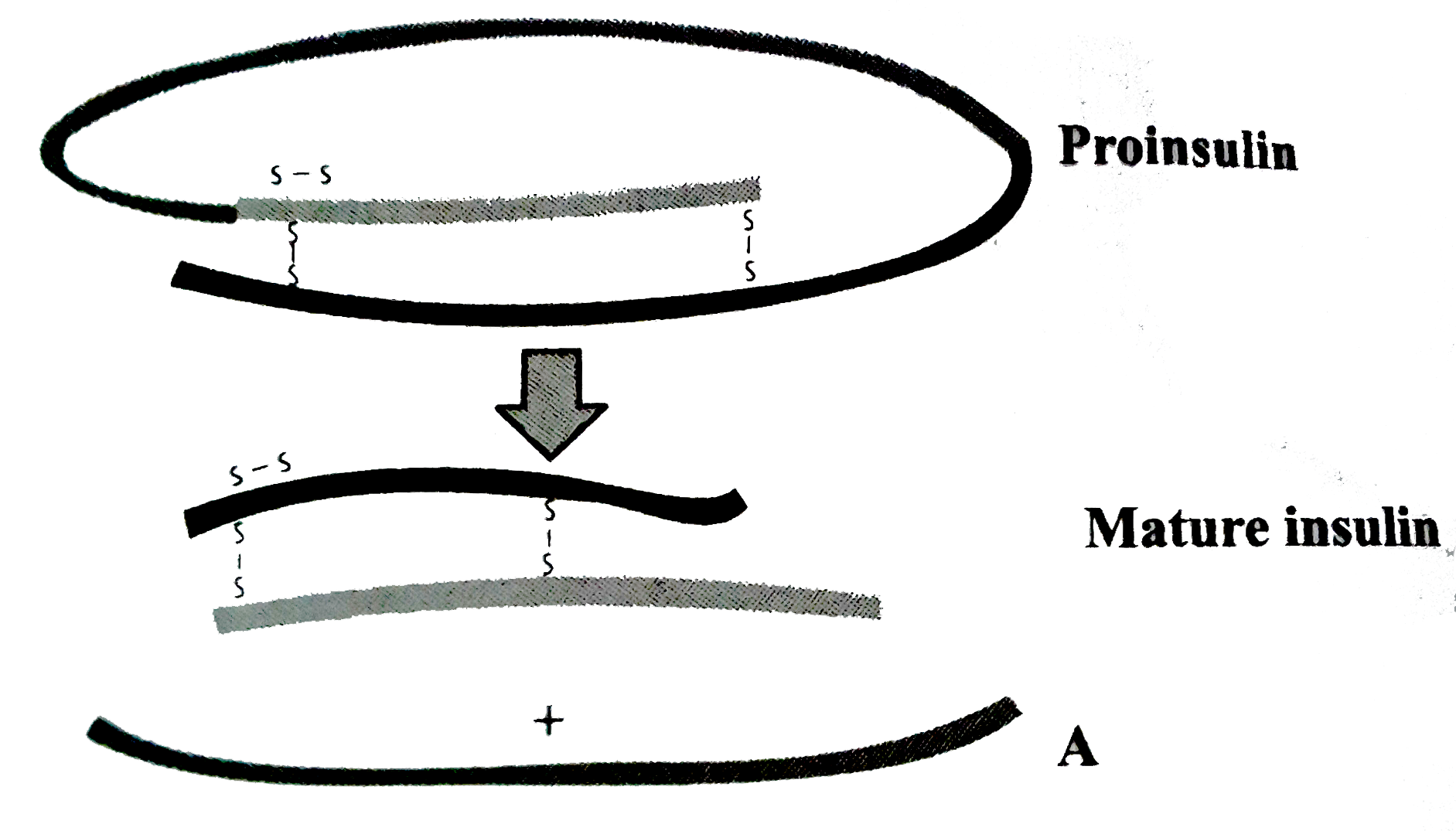Which represents action of insulin
Increases blood glucose level by stimulating glucagon production.
Decreases blood glucose level by forming glycogen.
Increases blood glucose level promoting cellular uptake of glucose.
Increases blood glucose level by hydrolysis of glycogen.
The correct Answer is:B
To solve the question "Which represents the action of insulin?", we need to analyze the options provided and understand the role of insulin in glucose metabolism.
1. Understand Insulin's Role: Insulin is a hormone produced by the beta cells of the pancreas. Its primary function is to lower blood glucose levels.
2. Evaluate Each Option:
- Option 1: "Increases blood glucose level by stimulating the glucagon production."
- This is incorrect because insulin does not increase blood glucose; it decreases it.
- Option 2: "Decreases the blood glucose level by forming glycogen."
- This is correct. Insulin promotes the conversion of glucose to glycogen (glycogenesis), thereby lowering blood glucose levels.
- Option 3: "Increases the blood glucose level promoting the cellular uptake of glucose."
- This is incorrect. While insulin does promote cellular uptake of glucose, it does not increase blood glucose levels; it decreases them.
- Option 4: "Increases the blood glucose level by hydrolysis of glycogen."
- This is also incorrect. Hydrolysis of glycogen (glycogenolysis) would release glucose into the bloodstream, which is contrary to insulin's action.
3. Conclusion: Based on the analysis, the only option that accurately represents the action of insulin is Option 2: "Decreases the blood glucose level by forming glycogen."
Final Answer:
The correct answer is Option 2: Decreases the blood glucose level by forming glycogen.
- Option 1: "Increases blood glucose level by stimulating the glucagon production."
- This is incorrect because insulin does not increase blood glucose; it decreases it.
- Option 2: "Decreases the blood glucose level by forming glycogen."
- This is correct. Insulin promotes the conversion of glucose to glycogen (glycogenesis), thereby lowering blood glucose levels.
- Option 3: "Increases the blood glucose level promoting the cellular uptake of glucose."
- This is incorrect. While insulin does promote cellular uptake of glucose, it does not increase blood glucose levels; it decreases them.
- Option 4: "Increases the blood glucose level by hydrolysis of glycogen."
- This is also incorrect. Hydrolysis of glycogen (glycogenolysis) would release glucose into the bloodstream, which is contrary to insulin's action.
The correct answer is Option 2: Decreases the blood glucose level by forming glycogen.
Similar Questions
Knowledge Check
Given figure represent the maturtion of pro-insulin into insulin. Identify the product A
 APolypeptide chain ABPolypeptide chain BCPolypeptide chain CDnone of these
APolypeptide chain ABPolypeptide chain BCPolypeptide chain CDnone of these
Diabetes is one of the most common lifestyle disorders in India , which is successfully treated with insulin therapy which radius the blood glucose levels . Which of the following mechanism correctly shown the action of insulin in lowering blood glucose levels ?
View SolutionWhich is used in production of insulin by genetic engineering
View SolutionDuring mechanism of action of insulin, protein kinase C is activated by
(a) PIP2
(b) IP3
(c) DG
(d) Ca2+
View SolutionWhich one of used in the production of insulin by genetic engineering ?
View SolutionWhich hormone possesses anti-insulin effect ?
View SolutionName a compound gland which secretes hormone insulin.
View SolutionName the cells which are acted upon by insulin
View Solution
